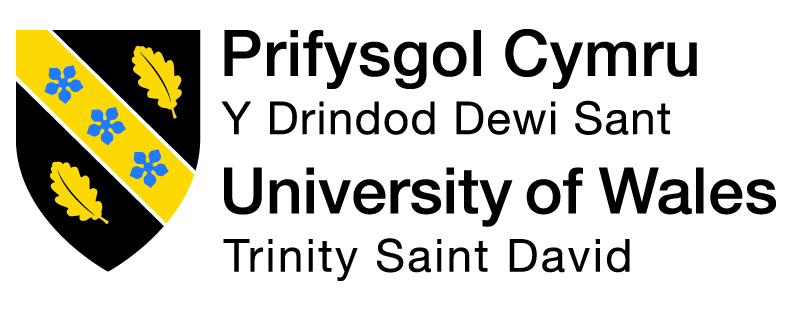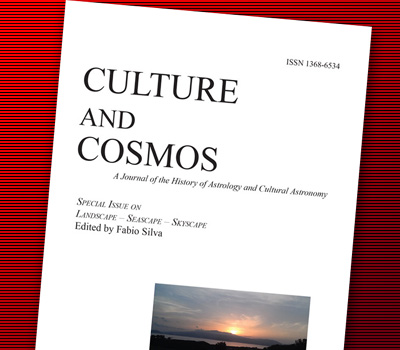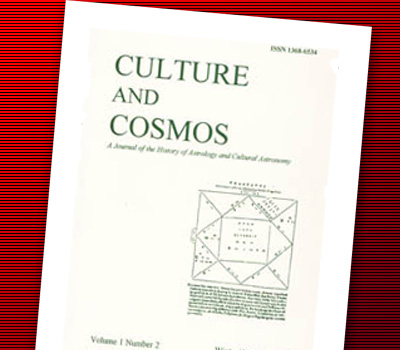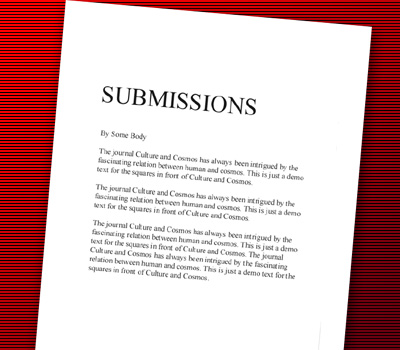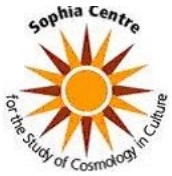We are currently seeking submissions for future volumes of Culture and Cosmos.
Volume 13
Volume 13, No. 1
Editorial
Nick Campion
The production schedule of Culture and Cosmos has slipped behind, due to various complications. However, the Autumn/Winter 2009 issue is in production, and the double issue (2010) on Johannes Kepler’s astrology is nearing completion. In the meantime, the University of Wales, Lampeter, with which Culture and Cosmos is associated, has merged with Trinity College, Carmarthen and has been renamed the University of Wales Trinity Saint David.
Archaeoastronomy at the Sophia Centre
The MA in Cultural Astronomy and Astrology at the University of Wales Trinity Saint David is in its ninth year of teaching: it was launched at Bath Spa University in 2002 and transferred to the University of Wales, where the first class intake was in January 2008, in order to focus on distance-learning. The MA syllabus was written in the context of the Study of Religions department at Bath Spa, before transferring to the University’s History department. Its emphasis is therefore strongly on the religious aspects of the human relationship with the sky, and its methodologies tend to be both historical and anthropological.
The Archaeoastronomy module was launched in January 2010, with Professor J. McKim Malville as the lead tutor. The emphasis is on the astronomical component of archaeoastronomical methodology, as it was felt that, in a single 20 credit module, it was inappropriate to include archaeology. Students can take several pathways through the assessment: they may take a literary approach (for example, examining the history of the discipline) an ethnographic one (for example, investigating the modern use of archaeoastronomical sites by tourists or pagans), or astronomical (for example, conducting site surveys to test for possible astronomical alignments). The technical level at which we expect research to be conducted is determined by the fact that this is a distance-learning course and students need have no prior experience: this is their introduction to practical Archaeoastronomy. Students are expected to work with tape and compass, and GPS if available, while a theodolite is regarded as an optional extra.
The astronomical option proved popular and, when the module was launched in the academic year 2009–10, seven out of nine students in the initial cohort set out to conduct site surveys. The first class resulted in two peer-reviewed studies—by Tore Lomsdalen (with John Cox) and Fabio Silva—and a report to the 9th “Oxford” International Symposium on Archaeoastronomy (IAU Symposium 278) in Lima, Peru, 4–14 January 2011. The Journal of Cosmology can be accessed at http://journalofcosmology.com/Contents9.html
John Cox and Tore Lomsdalen, ‘Prehistoric Cosmology: Observations of Moonrise and Sunrise from Ancient Temples in Malta and Gozo’, Journal of Cosmology, Vol. 9 (2010), pp. 2217–31; Fabio Silva, ‘Cosmology and the Neolithic. A New Survey of Neolithic Dolmens in Central Portugal’, Journal of Cosmology, Vol. 9 (2010), pp. 2194–206; Nicholas Campion and J. McKim Malville, ‘MA Education in Archaeoastronomy at the University of Wales Trinity Saint David’, in Clive Ruggles (ed.), Archaeoastronomy and Ethnoastronomy: Building Bridges Between Cultures, Proceedings of International Astronomy Union Symposium 278 (the 9th “Oxford” International Symposium on Archaeoastronomy), Lima, Peru, 4–14 January 2011 (Cambridge: Cambridge University Press, forthcoming, 2011).

